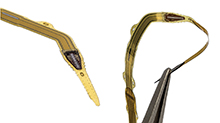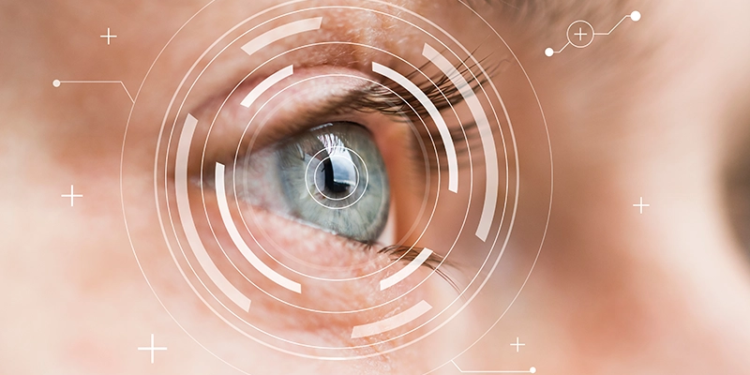
Image of the implant courtesy of imec.
A research and innovation hub in nanoelectronics and digital technology, imec, Heverlee, Belgium, has fabricated a prototype implantable chip that aims to give patients more intuitive control over their prosthetic arms. The ultrathin silicon chip is said to be a world’s first for electrode density. It was developed in collaboration with researchers at the University of Florida (UF), as part of the Implantable Multimodal Peripheral Recording and Stimulation System (IMPRESS) project funded by the Defense Advanced Research Project Agency’s Hand Proprioception and Touch Interfaces (HAPTIX) program to create a closed-loop system for future-generation haptic prosthetics technology.
According to Rizwan Bashirullah, PhD, associate professor of electrical and computer engineering, and director of UF’s IMPRESS program, “this effort aims to create such new peripheral nerve interfaces with greater channel count, electrode density, and information stability, enabled largely by imec’s technological innovation.”
As part of IMPRESS, imec has made a prototype ultrathin chip with a biocompatible, hermetic, and flexible packaging. With a thickness comparable to that of a human hair, it will ultimately be suitable for minimal invasive implantation. On its surface are 64 electrodes, with a possible extension to 128. This high amount of electrodes allows fine-grained stimulation and recording. Through a needle attached to the chip, the package can be inserted and attached inside a nerve bundle, further increasing the precision of reading and stimulation compared to current technology, which has substantially fewer electrodes and is wrapped around the nerve bundle. In practice, imec’s solution will give patients more control over their prosthetic arm and hand, and also the possibility of a finer haptic feedback.
“These interfaces allow a much higher density of electrodes and greater flexibility in recording and stimulating than any other technology. With the completion of this prototype and the first phase of the project, we look forward to the next phase where we will make the prototype ready for long-term implanted testing,” said Dries Braeken, research and development manager and project manager of IMPRESS at imec.
Editor’s note: This story was adapted from materials provided by imec.
Support authors and subscribe to content
This is premium stuff. Subscribe to read the entire article.




